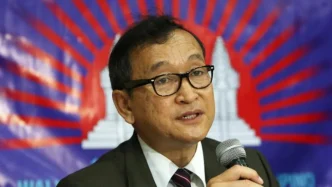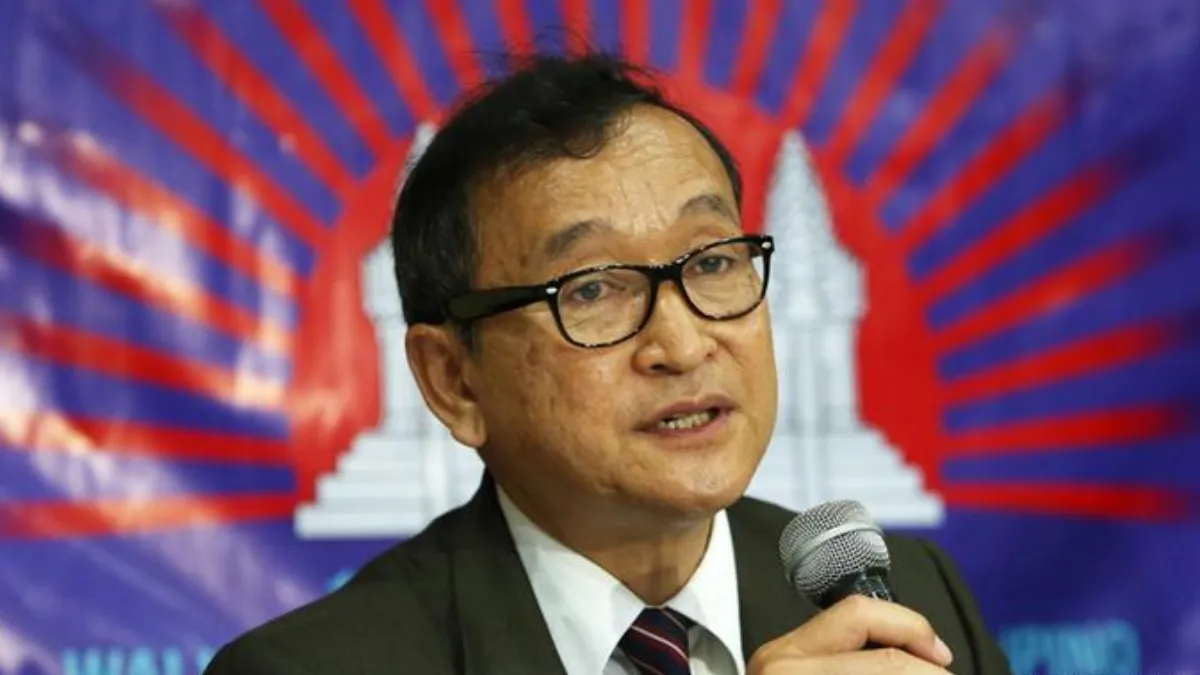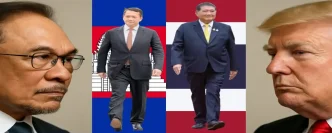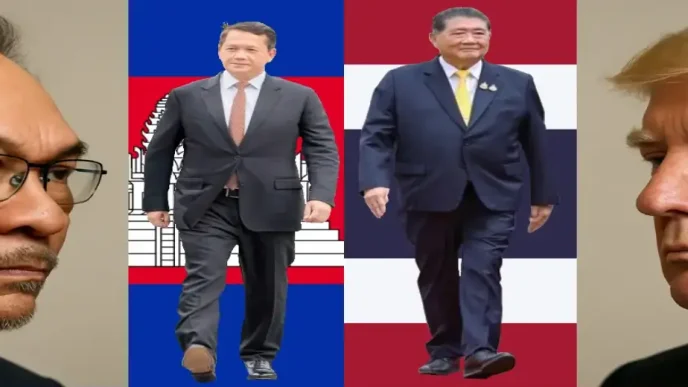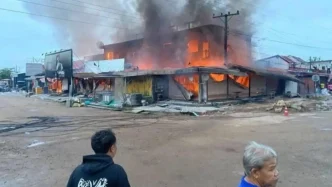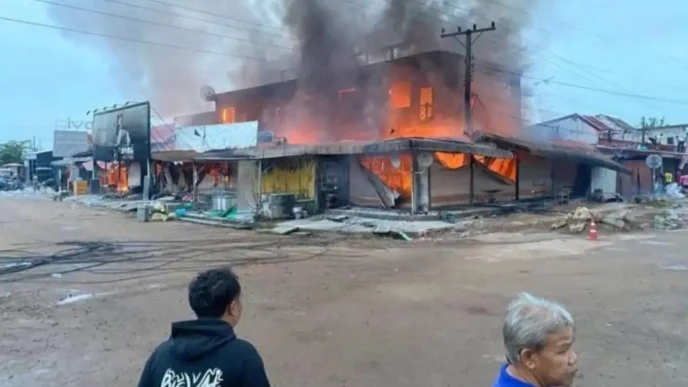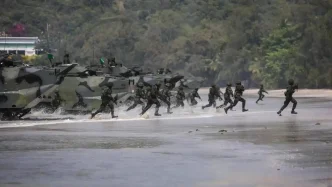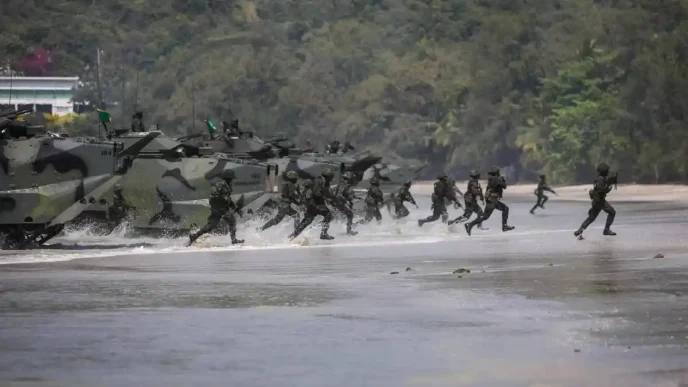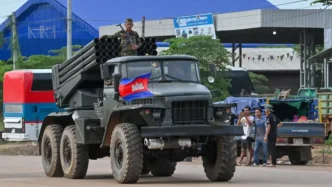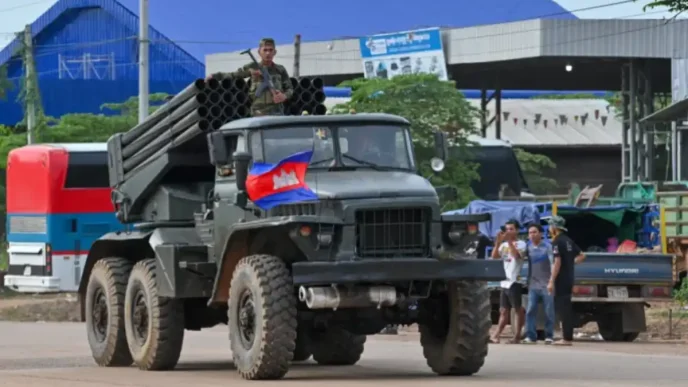Escalating diplomatic friction between Cambodia and Thailand has taken a personal turn, with Cambodia’s influential former leader Hun Sen launching a scathing public attack on Thai Prime Minister Paetongtarn Shinawatra and her family, namely her father, Thaksin Sinawatra. The tirade, delivered in a televised address lasting over three hours on Friday, has drawn sharp criticism from exiled Cambodian opposition leader Sam Rainsy, who claims Hun Sen’s rhetoric is a diversion from deeper issues tied to illicit financial networks along the border.
A Public Rebuke Shakes Diplomatic Norms
Hun Sen, who ruled Cambodia for nearly four decades before handing over power to his son Hun Manet in 2023, used the televised speech to express his frustration over a long-standing border dispute between the two nations. His comments, however, went beyond policy disagreements, targeting Paetongtarn Shinawatra personally and criticizing her father, former Thai Prime Minister Thaksin Shinawatra, once considered a close ally. The personal nature of the attack has raised eyebrows in diplomatic circles, with Thailand’s Ministry of Foreign Affairs expressing surprise at the breach of protocol.
“It surprised us, and it’s quite extraordinary in terms of diplomatic norms” said Nikorndej Balankura, a spokesperson for Thailand’s Ministry of Foreign Affairs, in a statement to international media on Friday. Thai officials have emphasized the importance of resolving the dispute through diplomatic channels, despite the provocative remarks from Phnom Penh.
The border tensions, while not new, have flared in recent years over territorial claims and overlapping interests in the Gulf of Thailand, where potential oil and gas reserves lie. But beyond the geopolitical stakes, opposition voices in Cambodia suggest Hun Sen’s latest outburst is less about national pride and more about protecting a regime under pressure.
Opposition Claims: A Smokescreen for Illicit Networks
Sam Rainsy, co-founder of the now-dissolved Cambodian National Rescue Party (CNRP) and a long-time critic of Hun Sen, has been living in self-exile in Paris since 2015. In a statement posted on his social media account on Saturday, Rainsy accused Hun Sen of using nationalist rhetoric to mask vulnerabilities within the Cambodian leadership, particularly in light of Thailand’s recent crackdown on cyber-scam operations along their shared border.
“Hun Sen’s current fury toward Thailand stems not from national pride, but from the growing threat to the illicit revenue streams that sustain his power—namely, criminal syndicates controlled by the Chinese mafia and operating along Cambodia’s borders” Rainsy wrote. He argued that these networks, which allegedly generate significant income for elements within the Cambodian regime, are now under unprecedented scrutiny from Thai authorities.
Rainsy’s claims point to a shadowy industry of cyber-scams and human trafficking that has reportedly flourished in border areas, particularly in regions like Sihanoukville in southern Cambodia. Investigations by international media over the past decade have highlighted how these operations, often run by foreign criminal groups, exploit vulnerable populations and funnel profits through complex networks. Thailand’s recent efforts to dismantle such operations, including raids and arrests in border zones, have reportedly disrupted these activities, potentially cutting off a financial lifeline for certain factions in Cambodia.
While exact figures are difficult to verify, Rainsy suggested that the scam industry could be worth billions annually, a significant portion of Cambodia’s economy. He further alleged that with traditional revenue sources like natural resource exploitation and land concessions dwindling due to years of mismanagement, the regime has increasingly relied on these illicit enterprises to maintain power.
Historical Precedents and Nationalist Tactics
Rainsy also accused Hun Sen of employing nationalist sentiment as a political tool to deflect domestic criticism, citing past instances where similar tactics were used. He referenced the 2003 riots in Phnom Penh, sparked by a fabricated controversy involving a Thai actress, which resulted in violence and strained bilateral relations. Additionally, he pointed to the 2011 border conflict over the Preah Vihear temple, a UNESCO World Heritage site, as another example of Hun Sen leveraging territorial disputes to rally public support during times of political vulnerability.
“In both instances, nationalism served as a tool to mask political vulnerability” Rainsy noted in his statement. His analysis suggests that the current dispute with Thailand follows a familiar pattern, where external conflicts are amplified to distract from internal governance failures and growing public discontent.
Cambodia’s political landscape has been marked by increasing authoritarianism in recent years, with opposition parties like the CNRP dissolved in 2017 and critical voices silenced or forced into exile. Hun Sen’s transition of power to his son last year was widely seen as an attempt to secure a dynastic legacy, though questions remain about the stability of this arrangement amidst economic challenges and international scrutiny.
Thailand’s Response and Regional Implications
Thailand, for its part, has sought to downplay the personal attacks while focusing on the broader issues at hand. The border dispute, which centers on overlapping claims in the Gulf of Thailand, has long been a point of contention, with both nations eager to access potential energy resources in the area. Negotiations have been ongoing for years, but progress has been slow, hampered by domestic political considerations on both sides.
Beyond the territorial issue, Thailand’s crackdown on cross-border crime has added another layer of complexity to the relationship. Thai authorities have intensified efforts to combat cyber-scam operations, many of which are believed to be based in Cambodia and Myanmar, exploiting lax regulations and weak enforcement. These scams, often involving call centers that target victims worldwide with fraudulent schemes, have drawn international attention, with the United Nations and other bodies calling for coordinated regional action.
The personal nature of Hun Sen’s recent comments, particularly his criticism of the Shinawatra family, risks further complicating diplomatic efforts. Thaksin Shinawatra, a polarizing figure in Thai politics, has had a historically complex relationship with Cambodian leaders, at times fostering cooperation and at others facing accusations of meddling in regional affairs. His daughter’s current tenure as prime minister adds a familial dimension to the dispute, one that Hun Sen appears willing to exploit for political gain.
Broader Context: Crime, Corruption, and Governance
The allegations of ties between the Cambodian regime and criminal networks are not new. Investigative reports dating back several years have documented the accumulation of wealth by the Hun family and their associates, often at the expense of Cambodia’s impoverished population. While direct evidence linking Hun Sen or his inner circle to specific cyber-scam operations remains limited, the broader narrative of systemic corruption and governance challenges in Cambodia is well-established.
For instance, Cambodia ranks low on global indices of transparency and governance, with organizations like Transparency International consistently highlighting issues of corruption and weak rule of law. The exploitation of natural resources, forced evictions for land concessions, and now the alleged reliance on illicit industries paint a picture of a regime struggling to maintain legitimacy through economic means alone.
Thailand’s actions against border crime, while primarily driven by domestic and international pressure to curb cyber-scams, inadvertently place additional strain on Cambodia’s leadership. If Rainsy’s assertions hold weight, the crackdown could indeed threaten a key source of revenue for elements within the regime, forcing Hun Sen to resort to familiar tactics of nationalist rhetoric to shore up support.
Looking Ahead: A Fragile Balance
As tensions between Cambodia and Thailand simmer, the path forward remains uncertain. Diplomatic efforts will likely continue behind closed doors, with both sides aware of the risks of escalation in a region already grappling with political instability and economic challenges. For Cambodia, the dispute serves as a reminder of the delicate balance between maintaining domestic control and managing international relations, particularly with a powerful neighbor like Thailand.
For Hun Sen, whose influence remains formidable despite stepping down from the premiership, the stakes are high. Whether his latest outburst is indeed a calculated distraction or a genuine expression of frustration, it underscores the fragility of Cambodia’s political system and the lengths to which its leaders may go to protect their interests. As Thailand presses forward with its crackdown on border crime, the ripple effects on Phnom Penh’s power structures—and on regional stability—will be closely watched.

